The greatest operas of all time
By and large, the “greatest opera” is a subjective matter. What touches one’s heart may leave another completely unimpressed, and vice-versa. However, there are some memorable operas in the history of classical music that never fail to elicit profound emotion in listeners, worldwide.
Today, we take a look at some of the most famous, most well-loved pieces of opera out there. These are a great way to broaden your horizons, if you are just getting into opera. Alternatively, if you’re perusing the program of your local opera house, and aren’t sure what to attend, these works will never fail to impress.
So, without further ado, what are the best operas of all time?
1. Die Walküre (Richard Wagner, 1870)

Even if you’ve never attended the opera in your life, you’ll instantly recognize Wagner’s The Ride of the Valkyries. Rarely in the history of opera has there been a piece of work with such an emotional, epic charge. And of course, it hails from Wagner’s second installment in the Ring four-part opera cycle, Die Walküre.
Taking place some time after Das Rheingold, Die Walküre centers around the conflict between the king of the gods, Wotan, and his mortal son, Siegmund. Unwittingly, young Siegmund has fallen in love with his twin, Sieglinde, who in turn is married to the brutish Hunding.
While Die Walküre follows many of the same themes as the other Ring installments, what makes it perhaps the most memorable is the richness of the arias, such as Magic Fire Music, and Wotan’s Farewell.
2. Eugene Onegin (Pyotr Ilyich Tchaikovsky, 1879)
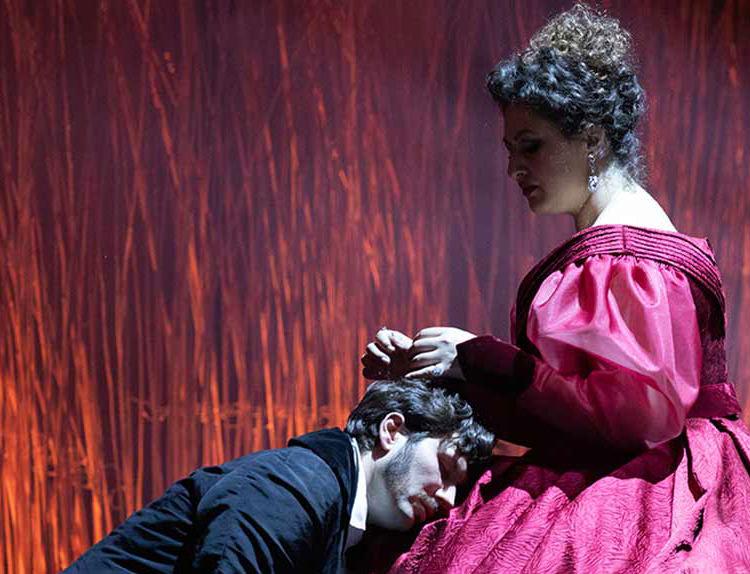
Inspired by the novel of the same name, penned by famous Russian poet, Alexander Pushkin, Tchaikovsky’s Onegin offers the perfect glimpse into high-society ennui. Its title character is a dandy, the archetype of the “superfluous man” in literature. Eugene Onegin is bored of everything – balls, parties, dinners, the countryside. When the opera begins, we see him cruelly turn down the romantic advances of young Tatyana, and go off on his own European adventure.
Eugene Onegin showcases a classic reversal of fortune, another popular trope. Upon his return to Saint Petersburg, Onegin learns that Tatyana has since married into the royal family, news Onegin takes rather sourly. This prompts him to attempt his own seduction of Tatyana, to curry favor with the nobility. In the end, Onegin experiences the same rejection, Tatyana thus condemning him to his permanent state of boredom and dissatisfaction.
3. The Marriage of Figaro (Wolfgang Amadeus Mozart, 1786)
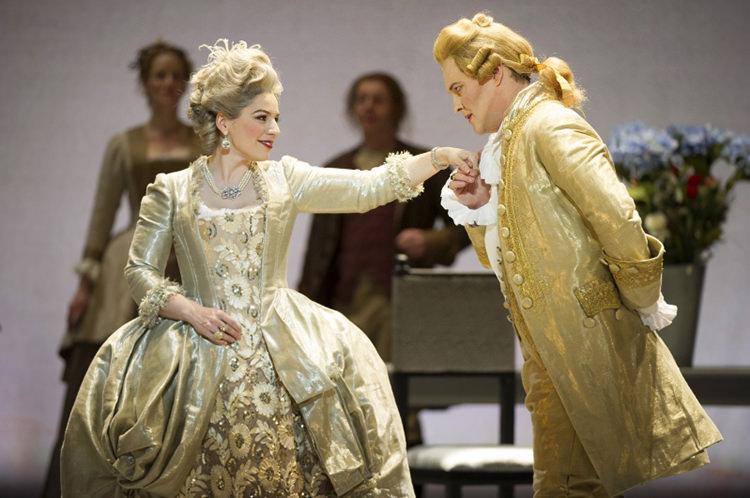
You’ll be hard-pressed to find an opera more emblematic and recognizable than Mozart’s Marriage of Figaro. In sharp contrast to Verdi’s Traviata, Figaro is a bustling operatic comedy, with over-the-top arrangements and several laugh-out-loud moments.
It follows the story of Figaro and Susanna, servants of the Count and Countess Almaviva. Figaro and Susanna love each other deeply, and when the opera begins, they are preparing to wed. However, their plans are thrown into disarray when Figaro learns the Count tried to seduce young Susanna. Enraged, Figaro plots to take his vengeance on the amorous Count, and hilarity ensues.
While regarded largely as a comedy today, The Marriage of Figaro was actually quite controversial in its day. Dealing with servants rising up against their oppressive masters, Mozart’s work was briefly banned during the tumultuous end of the 18th century.
4. The Barber of Seville (Gioachino Rossini, 1816)
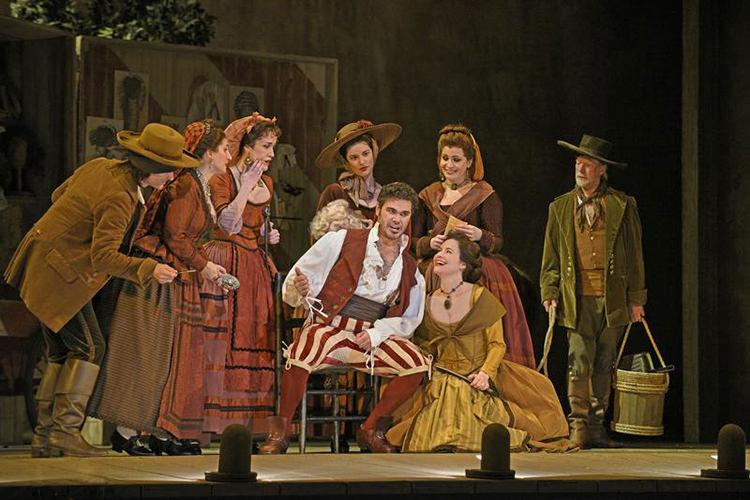
Rossini’s The Barber of Seville takes place a few years before Mozart’s The Marriage of Figaro (which ironically premiered 30 years before Barber) Both operas are based on the Figaro trilogy of French playwright Pierre Beaumarchais.
In The Barber of Seville, we once again meet young Figaro, a humble barber, and his employer, the Count Almaviva. Here, however, the Count has a different romantic interest, young and beautiful Rosina. The Count aims to woo Rosina, before her aged guardian, Dr. Bartolo, does so himself.
The Barber of Seville stands out both due to its electrifying arias, as well as the hilarious comedic moments.
5. La Traviata (Giuseppe Verdi, 1853)
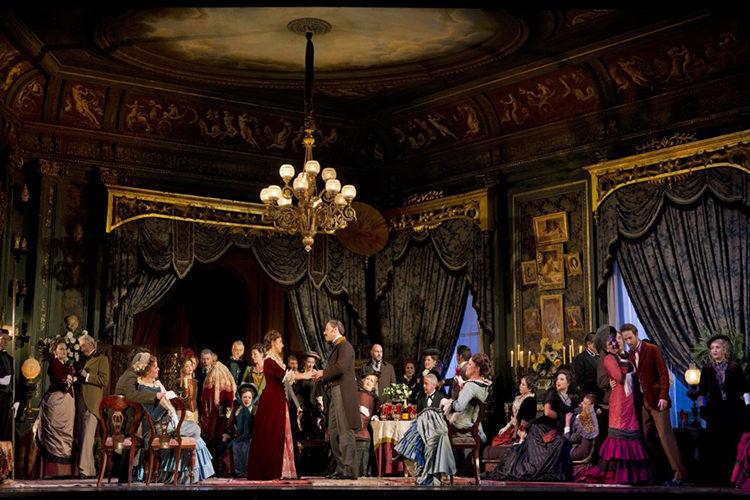
By the time he published what would eventually become his most famous work, Italian composer Giuseppe Verdi had already enjoyed considerable success with Rigoletto, and Il Trovatore. In fact, upon its premiere, three-act La Traviata did not enjoy the same roaring success of Verdi’s previous works, and threatened to prove underwhelming.
In order to “save” the opera, it was insisted that it be set in the past (in the 1700s), directly opposing the composer’s wishes to give Traviata a contemporary setting.
Nevertheless, Traviata is one of the best-known operas today, largely due to the deeply riveting and tragic performance of the heroine, Violetta. Violetta, who is a courtesan, is hopelessly in love with Antonio, a man from a noble family. Violetta is forced to choose between her happiness, and the honor of both herself, and her noble lover.
From the orchestration to the universally-appealing themes of true love and sacrifice, La Traviata comprises all the best elements in an opera.
6. La Boheme (Giacomo Puccini, 1896)
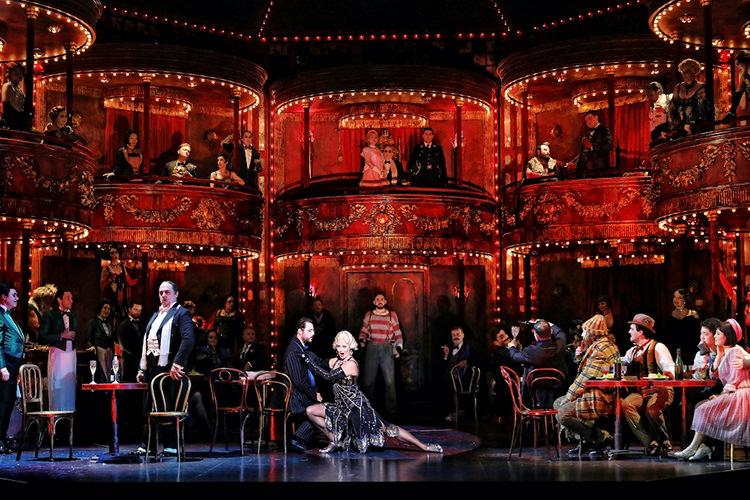
Puccini merits another mention on our list for his stunning La Boheme. Taking place in Paris, in the 19th century, La Boheme follows a young cast of characters, each playing to his own unique motif.
While La Boheme begins as a play about the joy of being in love, it rapidly descends into tragedy, as tuberculosis ravages the French capital. As the cast ensemble of the opera is largely poor and unprotected, one of them is bound to fall ill.
La Boheme is an intense drama that continues to compel audiences today.
7. Tosca (Giacomo Puccini, 1900)
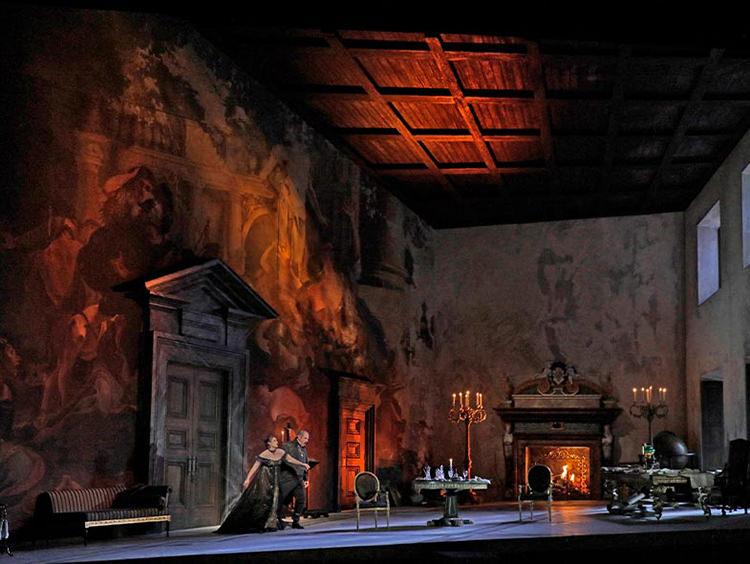
Circling back to operatic tragedy, few operas are more riveting and emotional than Puccini’s Tosca. First performed in Rome, at the turn of the 20th century, Tosca brings to the stage some important themes like corruption, abuse, and of course, the ever-popular tragic love.
Tosca is the tale of a corrupt chief of police, Baron Scarpia, who is enamored with the beautiful singer, Floria Tosca. Seeing, however, that the singer is oblivious to his advances, Scarpia arrests Tosca’s lover, seeking to coerce her into a relationship.
What makes Tosca such a memorable, timeless work, aside from the fantastic arias, is the universal nature of its themes. The audience never fails to see itself in the dark, murky underdepths of Puccini’s Tosca, which makes it one of the most loved operas to this day.
8. Porgy and Bess (George Gershwin, 1935)
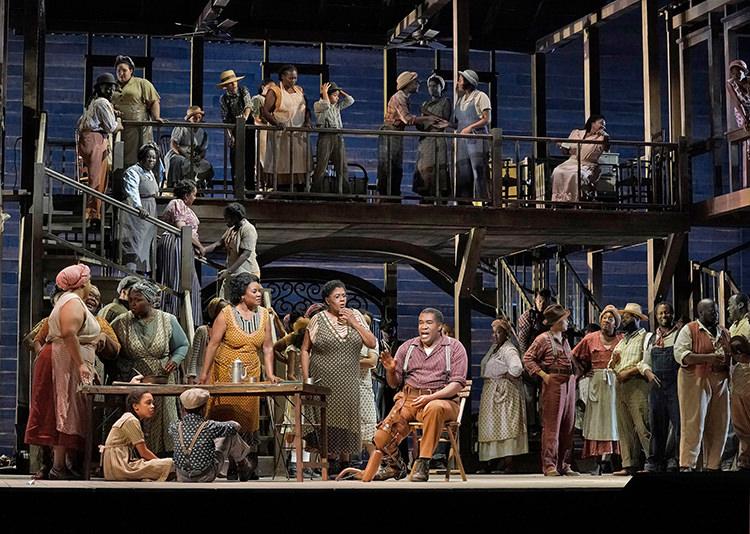
Following the story of a domestic abuse victim, Bess, and a disabled beggar, Porgy, Gershwin’s opera made history not just because of its tragic, mournful music, but for its casting.
First performed in the 1930s, when segregation was still at an unreasonable height, Porgy and Bess was among the first art works to cast Black actors in Black roles, on Gershwin’s insistence. Despite this controversial decision, Porgy and Bess enjoyed tremendous success.
9. Dialogues of the Carmelites (Francis Poulenc, 1957)
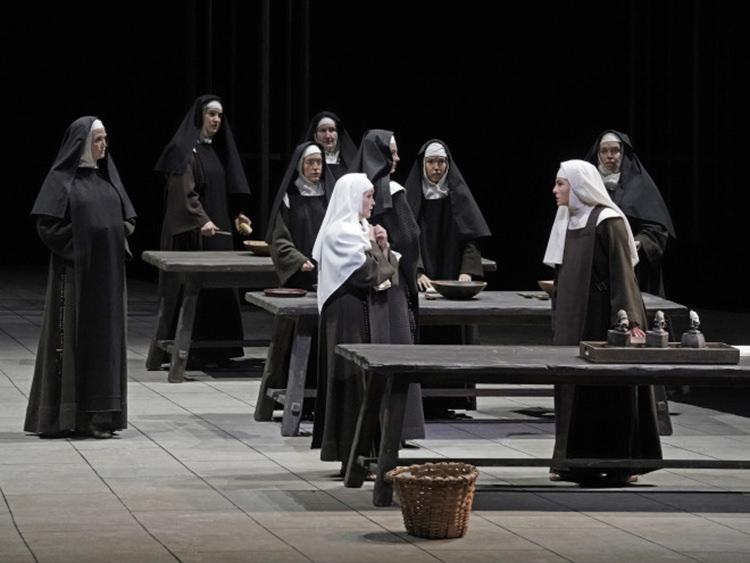
This 20th century opera sees an interesting change of pace. Penned by two Catholic priests, Dialogues of the Carmelites is based on the real, terrifying story of the Martyrs of Compiègne.
Set against the intense backdrop of the French Revolution, and the ensuing Reign of Terror, Dialogues follows the tragic tale of 16 Catholic nuns. In a time when practicing religion was anathema, these women persisted, and met a tragic end for their faith, all 16 being guillotined.
10. Dead Man Walking (Jack Heggie, 2000)
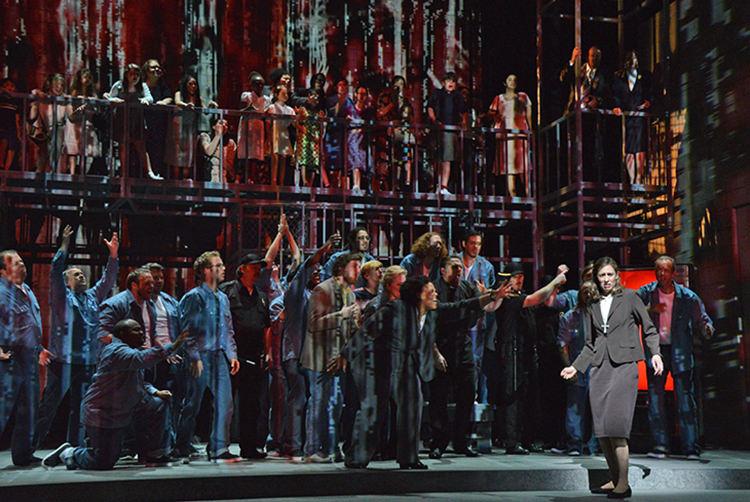
You may be familiar with the movie of the same name, starring Susan Sarandon and Sean Penn. Heggie’s Dead Man Walking follows the controversial story of a Louisiana nun, Helen Prejean, and her visits to death-row convict Matthew Poncelet.
While initially, the Sister contacts the convict out of a sense of duty, a strange relationship develops between the two, challenging their (and the audience’s) morals and convictions.
Thanks perhaps to the touching nature of this true story, Dead Man Walking is the most performed U.S. opera of the 21st century.
So much for the greatest operas of all time – it’s time to listen for yourself. Radio Art offers six distinct channels dedicated to opera. Here, you can enjoy all the best arias of the above operas, in a variety of direction and casting.
Our website respects the intellectual property rights of creators, as well as the music rights of authors and composers.
The musical works are provided solely for the private use of each visitor/user
and any further exploitation of them in any way is prohibited without prior permission from AUTODIA and EDEM Rights.
Radio Art is fully approved by the Greek Collective Rights Organizations | AUTODIA | EDEM Rights
Copyright © RABS - Radio Art Broadcasting services Ltd. All rights reserved.
The Art of Relaxing & Meditation Music
Privacy Policy & TOS








